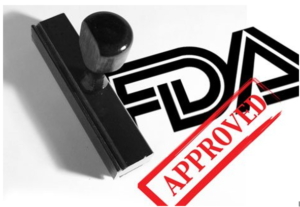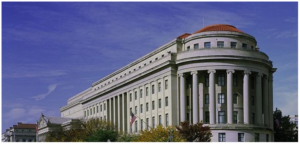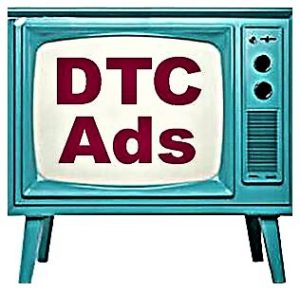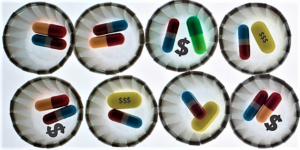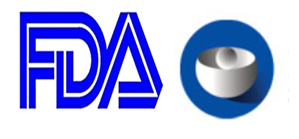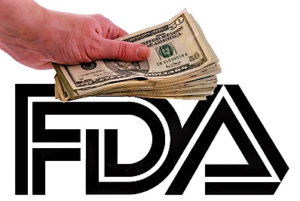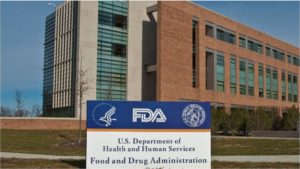- Drugs approved with limited data aren’t always well-tested later (reuters.com)
New medicines that win U.S. marketing approval without conclusive evidence of their effectiveness aren't always proven to work after they go on sale, a recent research review suggests...Researchers focused on medicines approved for sale based on single pivotal trials or based on what's known as "surrogate markers," such as lab tests and signs of risk for disease such as cholesterol levels instead of true clinical outcomes like heart attacks or deaths. Many times no follow-up studies were published after these medicines went on sale, and when studies were published they often continued to rely on surrogate markers to suggest potential effectiveness...speeding up the approval process increases our collective uncertainty about drugs' benefits and safety...This exposes patients to risks - the risk that they are spending their resources on therapies that do not work as well as expected as well as the possibility that they are taking drugs that have underlying safety risks that have not yet been figured out… researchers examined published studies of 117 medicines approved for treating 123 medical conditions by the U.S. Food and Drug Administration...based on either a single pivotal trial or on trials that relied on surrogate endpoints...no follow-up studies were published for 43 of the 123 approved indications, or 35 percent...
- FDA scolds Indian API maker for not ensuring river water it uses is safe (fiercepharma.com)
The FDA has suggested an Indian API maker hire a consultant that understands FDA regulations after finding the company didn’t have a grasp of some basic requirements, including how to make sure the water that comes from a nearby river is sanitary before using it to make its products...In a warning letter to Badrivishal Chemicals & Pharmaceuticals, the FDA said its plant in Maharashtra has been using the river water since 2014 without scientific evidence that the system is capable of producing water that meets quality standards...plant employees knew the water for months was out of spec for total aerobic microbial counts when it was used in production, but they didn’t investigate or even seem to understand the process that the plant’s water system relies on to kill microorganisms...water was only one of the problems FDA investigators found...Records were found in trash bags behind a building that showed test results that were different from what had been officially recorded...
- FTC accuses Shire subsidiary of delaying generic rivals (biopharmadive.com)
The Federal Trade Commission...accused a Shire plc subsidiary of filing dozens of "sham" petitions with the Food and Drug Administration in an effort to delay generic competition to its branded prescription drug Vancocin HCI...the FTC alleged that Shire ViroPharma filed 43 citizen petitions with the FDA (along with 3 lawsuits) over a seven-year period, knowing that the FDA typically waited to approve generic drugs until it had resolved any outstanding citizen petitions...a deliberate attempt to maintain a monopoly...ViroPharma’s efforts led consumers and other purchasers to pay hundreds of millions of dollars more for the drug.
- The FDA targeted DTC, video, unapproved drug promotion in 2016 (mmm-online.com)
The FDA is taking a closer look at how drugmakers use channels like direct-to-consumer advertising and video, a shift that has raised questions for pharmaceutical marketers...On its face, the FDA's Office of Prescription Drug Promotion's batch of enforcement letters in 2016 seems par for the course, with the agency issuing a total of 11 letters, compared to 2014's and 2015's totals of nine each. But these letters contain important warnings for drugmakers about the FDA's evolving views on promotion, and what channels, tactics, and drugs it's examining closely…The OPDP...issued two enforcement letters for DTC TV ads developed by Sanofi for its insulin Toujeo and Celgene for its psoriasis drug Otezla. Regulators said the ads were distracting to viewers because they used frequent scene changes — and, in Otezla's case, abrupt changes in music — to distract viewers from presented risk information...These untitled letters were noteworthy because they signal a subtle shift in enforcement actions, with the FDA now examining tactics within DTC ads rather than focusing on bigger, more serious infractions, such as omitting risk information entirely…the FDA saying the viewer couldn't understand it because the imagery was too fast moving or the music was too catchy in the background...
- FDA approvals for specialty drugs to pick up in 2017 (managedhealthcareexecutive.modernmedicine.com)
The specialty drugs market is seeing increased competition and important advances in cancer and orphan drug development, including specialty generics and biosimilars...Following December’s FDA approvals of the intravenous biosimilar Lartuvo (olaratumab) for soft tissue sarcomas and the oral ovarian cancer biosimilar Rubraca (rucaparib), biosimilar and other specialty drug approvals are expected to hasten in 2017... Last year we saw a dip in...approvals but this year we are going to rebound with about 30 pending approvals...With 73 patent expirations for biologic agents by 2021, biosimilars will begin to emerge as a larger market presence in the next several years...New FDA biosimilars approvals over the next five years—including anticipated biosimilar approvals for the anti-cancer biologic agents Avastin (bevacizumab) and Herceptin (trastuzumab)—could represent a $46.2 billion market...Biologics are really acting more like competing brands, coming in at perhaps a 15% discount" compared to brand-name biologics...
- Pending approvals/patent expirations
- Recently approved specialty medications
- Specialty drug pipeline
- Pharmaceutical Inspections in Europe, US to Get New Framework (pharmacytimes.com)
The US FDA and the European Union took an important step forward this week in pharmaceutical manufacturer inspection collaboration, completing an exchange of letters that will allow the FDA and EU drug inspectors to rely upon information from drug inspections conducted within each other’s borders...the letters, which will amend the Pharmaceutical Annex to the US-EU Mutual Recognition Agreement, will enable the FDA and EU to "avoid the duplication of drug inspections, lower inspection costs and enable regulators to devote more resources to other parts of the world where there may be greater risk...The Mutual Recognition Agreement is an important step in working collaboratively and strategically with key partners to help ensure that American patients have access to safe, effective and high quality drugs…
- The top 10 drug launches of 2017 (fiercepharma.com)
- After an unusually slow year for new drug approvals—the FDA greenlighted just 22 meds in 2016—it remains to be seen whether drugmakers can do much better in 2017. One thing’s for sure, though: No matter what total the industry tallies up this year, the crop will bring some would-be blockbusters and market disrupters.
At the top of the list...is Ocrevus (ocrelizumab), the Roche multiple sclerosis drug that’s promising to shake things up in more ways than one...
Sanofi and Regeneron hot-shot Dupixent (dupilumab) could make a big splash in severe atopic dermatitis, assuming payers don’t get in the companies’ way.
Ditto for Biogen's Spinraza, which in December became the first FDA-approved product to treat spinal muscular atrophy—but whose high sticker could raise eyebrows at a time when U.S. President Donald Trump is threatening pricing action.
Tesaro and Neurocrine are looking for their first-ever FDA approvals, in breast cancer pill niraparib and tardive dyskinesia therapy Ingrezza, respectively.
...Kite Pharma is aiming to get the first-ever CAR-T cancer drug to market, with a candidate, KTE-C19, that the oncology community will be watching closely as the next big thing in immunotherapies.
Novartis’ ribociclib...which aims to challenge Pfizer’s Ibrance in the CDK 4/6 breast cancer space.
...semaglutide, Novo Nordisk's weekly GLP-1 drug, a would-be successor to the company's blockbuster Victoza…
- After an unusually slow year for new drug approvals—the FDA greenlighted just 22 meds in 2016—it remains to be seen whether drugmakers can do much better in 2017. One thing’s for sure, though: No matter what total the industry tallies up this year, the crop will bring some would-be blockbusters and market disrupters.
- FDA fees for product review would more than double under Trump budget (reuters.com)
The cost to healthcare companies for U.S. regulatory review of their products, including drugs and medical devices, would more than double under the Trump administration's proposed 2018 budget…over $2 billion in fees to be collected by the U.S. Food and Drug Administration from industry, twice as much as in 2017...it also offered measures that would help speed up the approval process for new drugs and other products...The FDA has been charging companies to review their products since 1992. Most of the user fees collected are for prescription drugs - around $866 million estimated in 2017 - and generic drugs - around $324 million...The budget does not say if the fee increases would be evenly spread or directed in a particular area. The budget did not provide specifics on what measures to speed up approvals might include...
- A Call For The FDA To Raise The Bar For Clinical Trials Is Flawed (forbes.com)
As the new Trump administration begins to take shape, there are concerns that new leadership at the FDA will call for less bureaucracy and red tape, thereby lowering the bar for new drug approvals. The view is that onerous regulations are preventing life-saving medications from getting to those who most need them. Lowering the standards for drug approvals may indeed allow for earlier patient access to drugs but...liberalization of current regulations would be a mistake. Such actions will unleash drugs that will ultimately prove to be ineffective and, in some cases, harmful rather than beneficial...the specter of deregulation, comes a call to increase the requirements for allowing early clinical trials of exploratory new medicines...Trials of ineffective therapies place burdens on society...Drug development soaks up financial and research resources...expenses wasted on ineffective therapies are often passed on to healthcare systems in the form of higher drug prices. The biopharmaceutical industry is testing “duds” and wasting precious resources because of unreasonable hope for a major commercial payoff...The biopharmaceutical industry is already heavily regulated. Current standards shouldn’t be lowered...
- Experts fret over a new hiring freeze at the FDA. Will the fallout be toxic to drug reviews? (endpts.com)
With hundreds of open positions and a slate of new initiatives to execute on at the FDA, President Donald Trump picked a particularly inconvenient time to declare a hiring freeze for the federal government...No one really knows how this is going to play out, but the speculation is rampant that the FDA will be forced to cut loose from its review timelines, which could have a big impact on a wide range of biopharma companies...the agency is expected to get a record 1600 ANDAs this year. Trump’s freeze could slow reviews on generics to a glacial pace, which in turn would interfere with the introduction of new discounted drugs that could go a long way to removing pressure on new drug prices...The only guarantee Trump can offer now is a rising level of uncertainty over the administration’s plans for the FDA. And that could take months to clarify during a particularly critical year for the biopharma industry...

